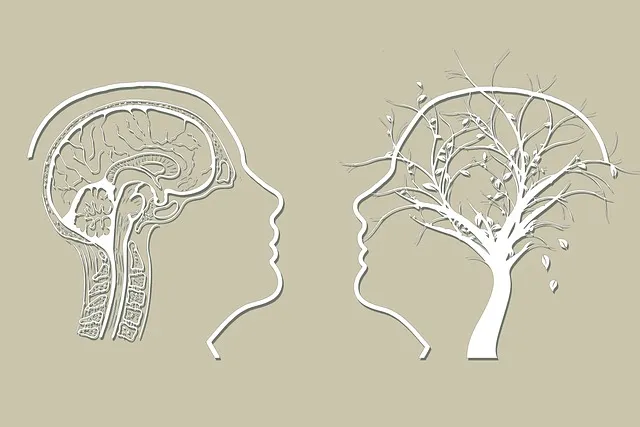Community outreach programs at Kaiser Permanente's mental health centers in Parker significantly improve access and quality of mental healthcare. These initiatives, like Inner Strength Development and Burnout Prevention, foster trust and empower individuals to manage their mental well-being. Positive Kaiser Permanente mental health center reviews highlight improved coping mechanisms, enhanced quality of life, and transformative effects on both individuals and the community. Effective outreach includes tailored programs, collaboration with local leaders and support groups, inclusive communication, and continuous evaluation based on feedback. Building strong partnerships ensures long-term engagement and sustainable positive change, as evidenced by Kaiser Permanente mental health center reviews Parker.
Community outreach programs play a pivotal role in enhancing mental health initiatives, bridging healthcare gaps, and fostering well-being. This article explores the transformative impact of such programs, using Kaiser Permanente Parker as a case study—a model for integrated healthcare that seamlessly blends community engagement with clinical care. We review success stories from mental health centers and offer strategies for effective implementation, emphasizing best practices and building sustainable partnerships to ensure long-term community outreach. Key focus areas include insights from Kaiser Permanente mental health center reviews, particularly those of the Parker location.
- Understanding Community Outreach: Its Role in Mental Health Initiatives
- Kaiser Permanente Parker: A Model for Integrated Healthcare
- Evaluating the Impact: Mental Health Center Reviews and Success Stories
- Strategies for Effective Program Implementation: Best Practices and Tips
- Building Sustainable Partnerships: Engaging the Community Long-Term
Understanding Community Outreach: Its Role in Mental Health Initiatives

Community outreach programs play a pivotal role in enhancing mental health initiatives, especially in areas like Parker where access to specialized care can be limited. Organizations such as Kaiser Permanente mental health centers strive to bridge this gap by bringing services directly to communities. This approach not only increases accessibility but also fosters a sense of belonging and trust, crucial for encouraging individuals to seek support for their mental well-being.
By implementing effective outreach strategies, these centers aim to build empathy between healthcare providers and community members, which is essential in addressing mental health challenges. Strategies like Inner Strength Development and Burnout Prevention can help healthcare professionals connect on a deeper level while offering tailored solutions. This holistic approach ensures that the unique needs of Parker’s residents are met, contributing to improved mental health outcomes as evidenced by Kaiser Permanente mental health center reviews.
Kaiser Permanente Parker: A Model for Integrated Healthcare

Kaiser Permanente Parker stands as a shining example of integrated healthcare, seamlessly blending medical and mental health services to foster holistic well-being. This innovative model has garnered significant attention, especially in the realm of Kaiser Permanente mental health center reviews Parker, showcasing its commitment to comprehensive patient care. The facility offers not just treatment for physical ailments but also emphasizes mental health education programs designed to cultivate inner strength and promote mental wellness.
By integrating these services, Kaiser Permanente Parker ensures that patients receive holistic support, addressing both their physical and psychological needs. This approach has been praised for improving patient outcomes and enhancing the overall quality of life. The success of this initiative underscores the importance of considering mental health as an integral component of overall healthcare, rather than a separate or secondary concern.
Evaluating the Impact: Mental Health Center Reviews and Success Stories

Evaluating the impact of community outreach programs, particularly those associated with mental health centers like Kaiser Permanente in Parker, is crucial to understanding their effectiveness. Reviews from participants and nearby communities offer valuable insights into the success stories that emerge from such initiatives. Many testimonials highlight improved access to mental health services as a primary benefit. Individuals previously struggling with stress reduction methods now report better coping mechanisms and enhanced overall well-being.
These programs have fostered an environment of positive thinking, where residents feel more empowered to manage their mental health proactively. The success stories extend beyond individual transformations; they contribute to the creation of a stronger, healthier community. By evaluating these impacts, it becomes evident that such outreach efforts are not just reaching but also profoundly affecting lives, potentially revolutionizing mental health discourse and support within Parker and similar areas.
Strategies for Effective Program Implementation: Best Practices and Tips

Community outreach programs aim to bridge the gap between healthcare services and those who need them most. When implementing initiatives like these at a Kaiser Permanente mental health center in Parker, consider best practices such as tailoring programs to local needs and involving community leaders from the outset. Collaboration with existing support groups and organizations can leverage their trust and connections.
For effective engagement, incorporate interactive activities that promote social skills training and empathy building strategies. Communication strategies should be inclusive and culturally sensitive to ensure all participants feel welcomed. Regular feedback mechanisms and continuous evaluation allow for adjustments based on what works best for the community. Incorporating these tips can enhance program impact and foster lasting positive change in Parker.
Building Sustainable Partnerships: Engaging the Community Long-Term

Building strong, sustainable partnerships is key to engaging communities long-term, particularly when implementing outreach programs focused on mental health initiatives. By fostering collaborative relationships with local organizations, schools, and faith groups in Parker, such as the Kaiser Permanente mental health center reviews highlight, you can create a supportive network that extends beyond one-off events. This approach ensures continuous engagement and empowers community members to take ownership of their well-being.
For instance, programs can offer ongoing Social Skills Training and Mindfulness Meditation sessions, teaching valuable tools for Stress Management. These activities not only benefit individuals but also strengthen the community’s overall resilience. By integrating these practices into daily life, residents can develop a deeper sense of connection and support one another, creating a sustainable impact that surpasses any single outreach effort.
Community outreach programs, as highlighted by successful models like Kaiser Permanente’s Parker mental health center, play a pivotal role in enhancing mental well-being. By integrating healthcare services with community engagement, these initiatives not only improve access to care but also foster long-lasting, sustainable partnerships. As evidenced through various reviews and success stories, effective implementation strategies centered around best practices can significantly positively impact mental health outcomes. Building strong community ties ensures that support systems remain in place, promoting ongoing wellness for all.






